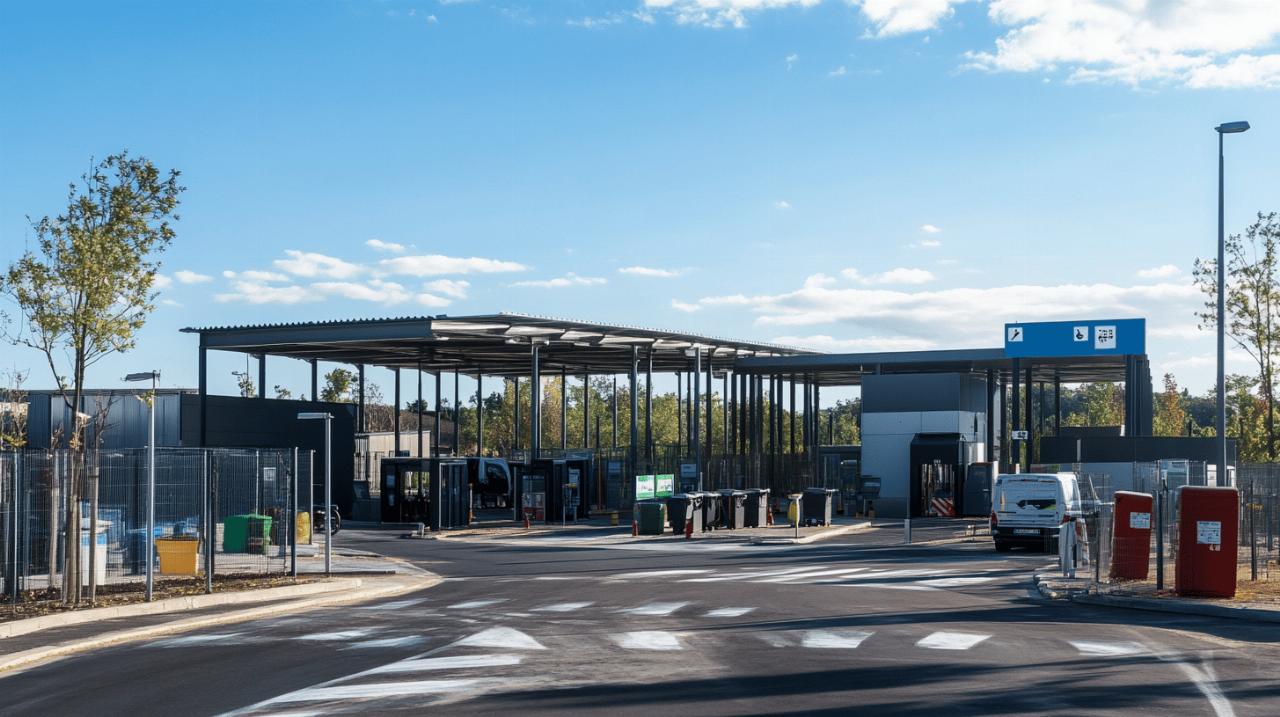Planning a trip to the Mérignac waste disposal site can save you time and ensure your visit goes smoothly. Whether you're clearing out the garage or disposing of garden waste, knowing the essential details beforehand will make the experience far more efficient. This comprehensive guide covers everything you need to know about contacting the facility, understanding the opening hours, locating the address, and preparing the necessary documentation for access.
Essential Contact Details and Location Information for Mérignac Recycling Centre
Finding the Mérignac Waste Disposal Site: Complete Address and Directions
The Mérignac recycling centre is conveniently situated to serve the local community and surrounding areas. For residents looking to responsibly dispose of household waste, electronics, and other recyclable materials, the facility provides a practical solution. The exact address of the site ensures that visitors can easily locate it using satellite navigation or traditional maps. Mérignac itself is located in the Gironde department of France, and the recycling centre is typically well signposted as you approach the area. Many residents find it helpful to check the precise location online before setting off, particularly if it is their first visit. The layout of the centre is designed with accessibility in mind, often featuring a small incline that allows vehicles to drive up to the level of the skips, making unloading waste straightforward and reducing the physical effort required.
How to Reach the Centre: Phone Numbers and Alternative Contact Methods
Before making the journey, it is advisable to contact the Mérignac waste disposal site to confirm details such as current opening hours or specific queries regarding the types of waste accepted. Having the phone number to hand ensures that any last-minute questions can be addressed promptly. In addition to direct phone contact, many French recycling centres now offer alternative methods of communication, including email enquiries and online forms. These digital channels can be particularly useful for residents who prefer to receive written confirmation or need to clarify documentation requirements ahead of their visit. The staff at the centre are generally well-versed in assisting both French speakers and those who may need guidance in English, making the process as smooth as possible for international residents or visitors.
Opening Times and Best Moments to Visit the Mérignac Facility
Standard Operating Hours Throughout the Week and Weekends
Understanding the standard operating hours of the Mérignac recycling centre is crucial to planning your visit effectively. The facility typically operates throughout the week, with specific hours set aside for public access. Weekday hours often cater to residents who can visit during the morning or early afternoon, whilst weekend slots accommodate those with weekday work commitments. It is worth noting that visiting during quieter periods, such as mid-morning on a weekday, can result in shorter waiting times and a more relaxed experience. Conversely, Saturday mornings tend to be the busiest period, as many households use this time to dispose of accumulated waste. Checking the current timetable before your visit is always recommended, as hours can vary depending on the season or operational adjustments.
Bank holiday arrangements and seasonal schedule adjustments
Bank holidays and seasonal changes can significantly impact the availability of the Mérignac waste disposal site. French public holidays often result in closures or reduced hours, so it is prudent to verify the schedule in advance if your visit coincides with a holiday period. Additionally, some recycling centres adjust their operating hours during the summer months to accommodate increased demand or to align with local authority schedules. Conversely, winter months may see slightly reduced hours due to daylight constraints. Staying informed about these adjustments ensures that you do not make an unnecessary trip only to find the gates closed. Many facilities now publish their holiday schedules online or provide updates via local council websites, making it easier than ever to plan ahead.
Documentation and Requirements for Accessing the Disposal Site

Proof of Residency and Identification Documents You'll Need to Bring
Accessing a French waste recycling centre such as the one in Mérignac typically requires proof of residency and valid identification. Unlike in the United Kingdom, where access to household waste recycling centres is often more straightforward, French facilities operate a user card system to monitor and manage waste disposal. To obtain this card, residents must register either online or in person at the local office, providing a passport and proof of address. Acceptable proof of address includes a utility bill or a Certificat de Domicile issued by the local mairie. This system ensures that the facility is used primarily by local residents and helps to prevent commercial misuse. Once registered, the user card grants you access to the site and must be presented upon arrival. It is advisable to keep this card in your vehicle along with your identification documents to avoid any delays during your visit.
Vehicle Registration and Permits for Commercial or Large-Scale Disposal
For residents planning to dispose of larger quantities of waste or operating a small business, additional permits or documentation may be required. The Mérignac recycling centre, like many others across France, distinguishes between household waste and commercial waste to ensure fair usage and appropriate charging. If you are driving a van or trailer, it is important to clarify in advance whether this will be treated as commercial activity, as different rules and potential fees may apply. Vehicle registration details may also be recorded upon entry to track usage and maintain security. For those undertaking significant clear-outs or renovation projects, contacting the centre beforehand to discuss your needs can help avoid any surprises and ensure compliance with local regulations.
Comprehensive Guide to Accepted Waste Materials and Recycling Categories
Household Items, Electronics, and Hazardous Waste Accepted at the Centre
The Mérignac waste disposal site accepts a wide variety of materials, reflecting the comprehensive approach to recycling and waste management adopted throughout France. Household items such as furniture, old appliances, and general bulky waste can be disposed of in designated areas. Electronics, including computers, televisions, and mobile phones, are collected separately to ensure safe recycling and the recovery of valuable materials. Hazardous waste, such as batteries, old engine oil, and cleaning products, must be handled with care and placed in the appropriate containers to prevent environmental contamination. The centre also accommodates green waste, including lawn cuttings, hedge trimmings, and small branches, which are often composted and made available to residents for free at a later date. This circular approach not only reduces landfill usage but also encourages sustainable gardening practices within the community.
Preparing your waste properly: sorting requirements before arrival
Proper preparation before arriving at the Mérignac recycling centre can significantly speed up the disposal process and ensure that waste is processed correctly. French waste facilities place a strong emphasis on separation at source, meaning that visitors are expected to have sorted their waste into categories such as wood, cardboard, metal, and rubble before arriving. Familiarising yourself with the layout of the centre and the specific skips available can help you plan where to unload each type of material. Many centres provide clear signage in French, so a basic understanding of key terms such as meubles for furniture, bois for wood, cartons for cardboard, and gravats for rubble is helpful. Taking the time to separate your waste at home not only makes the visit more efficient but also supports the broader recycling efforts of the local authority. Additionally, removing any non-recyclable contaminants from your waste, such as plastic wrapping from cardboard boxes, ensures that materials can be processed without issue and contributes to the overall environmental goals of the facility.



